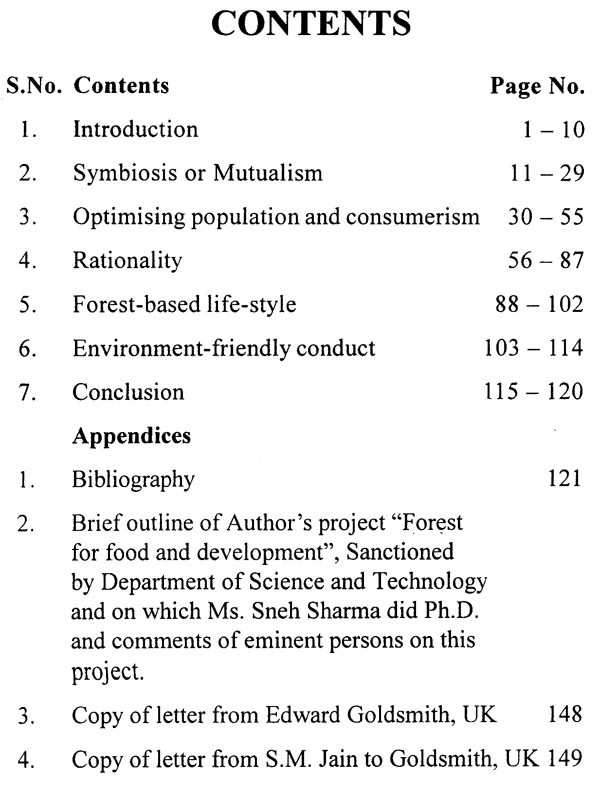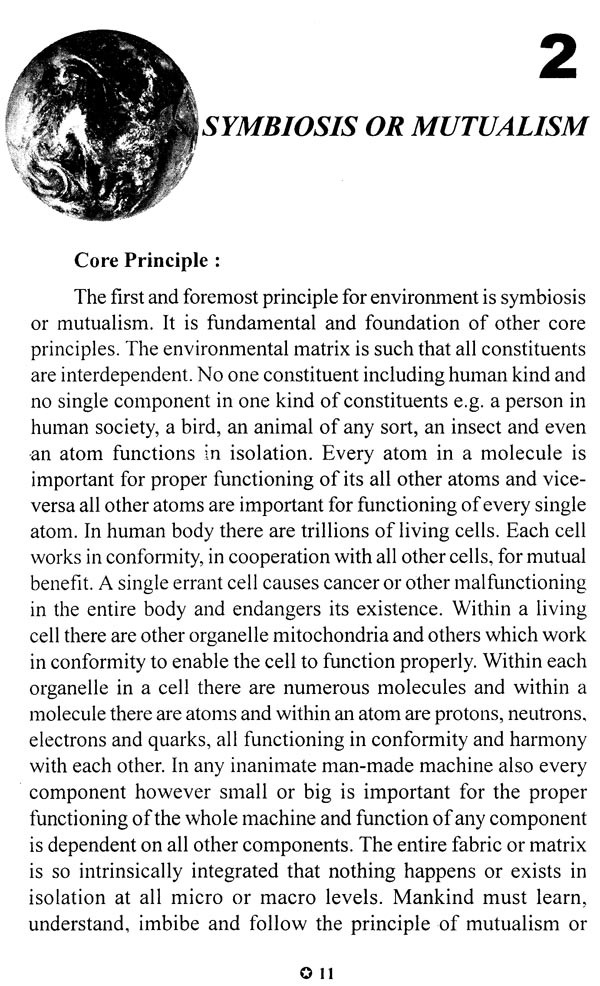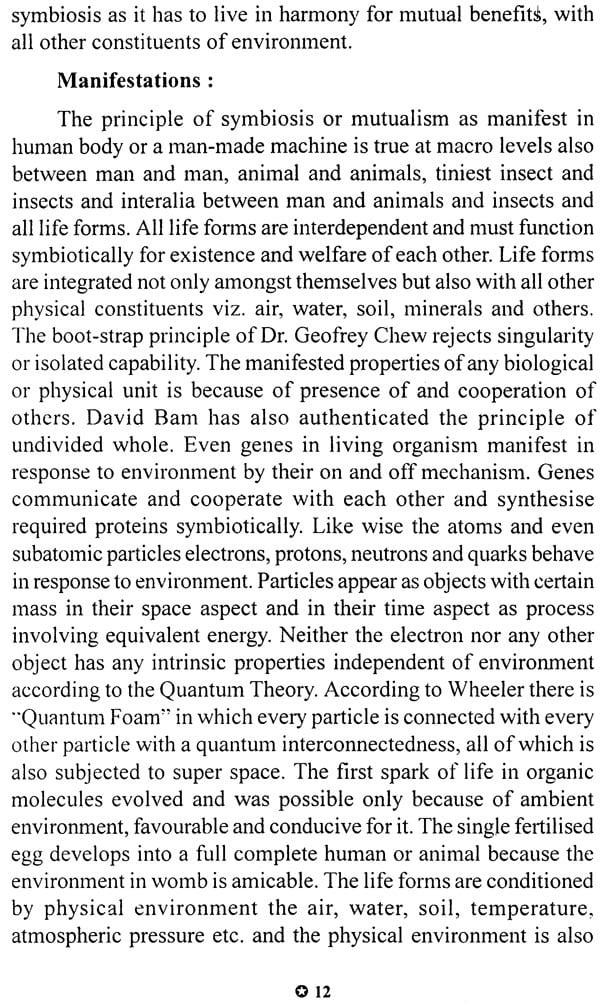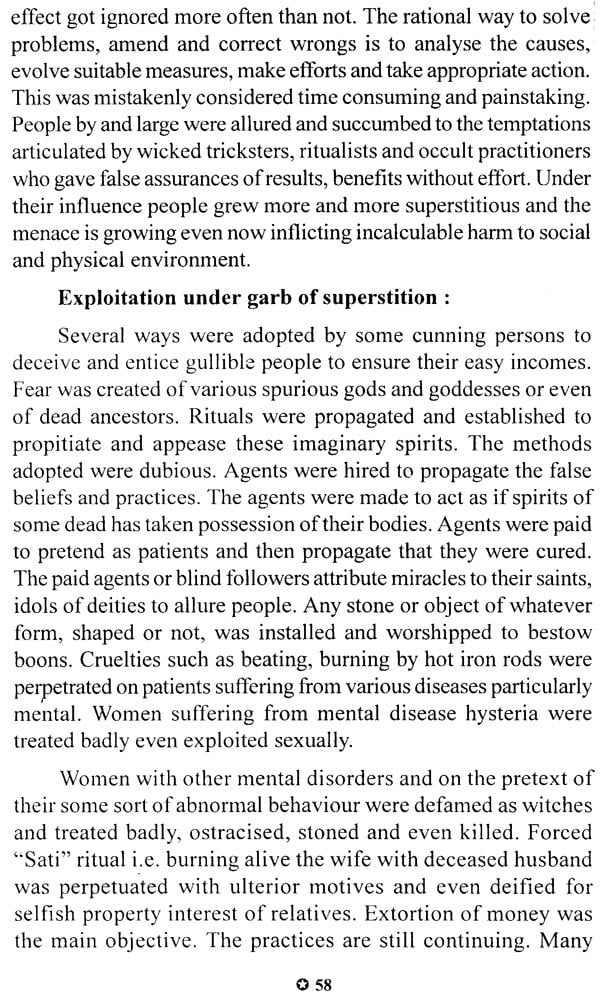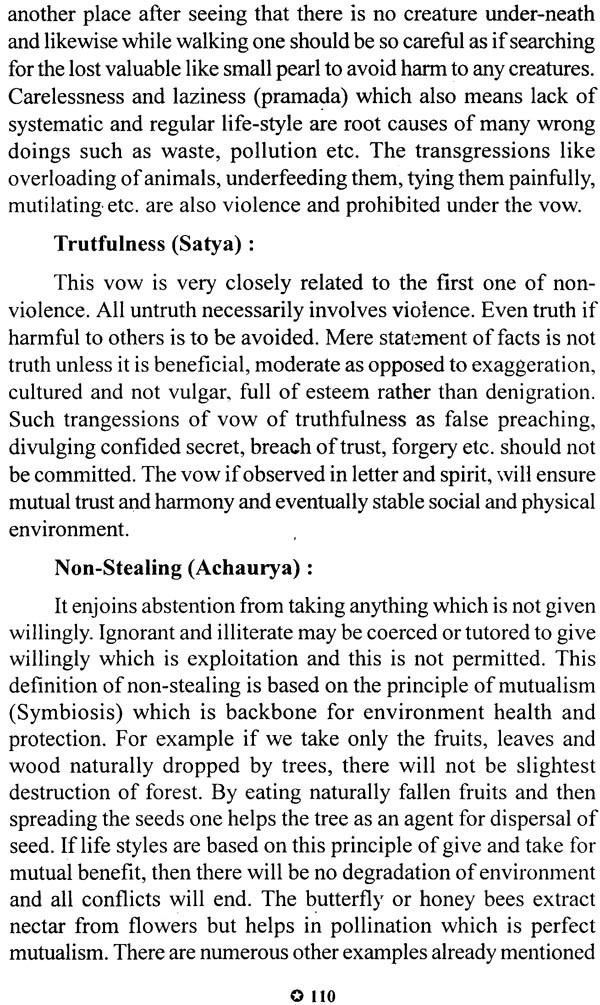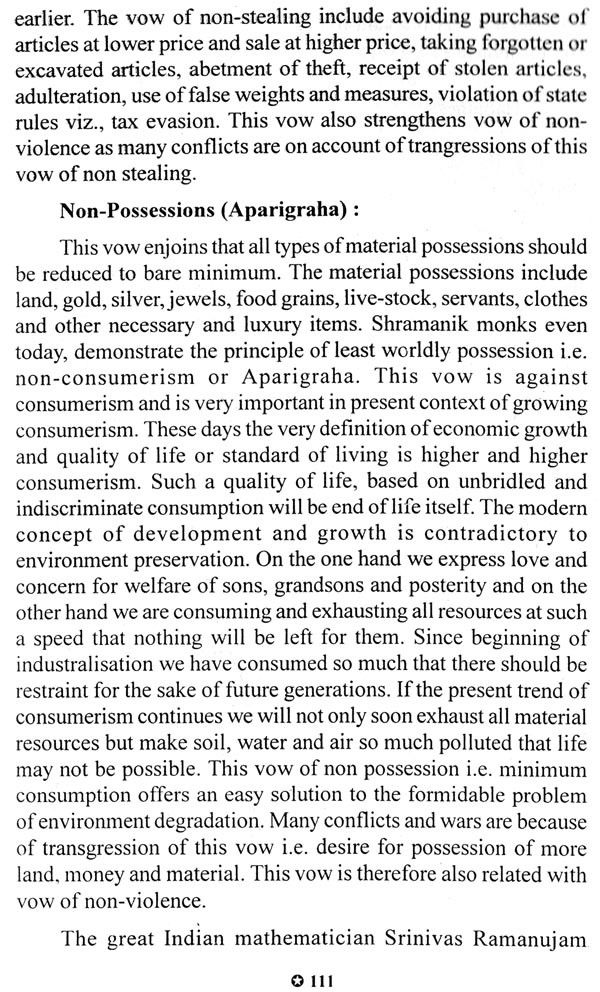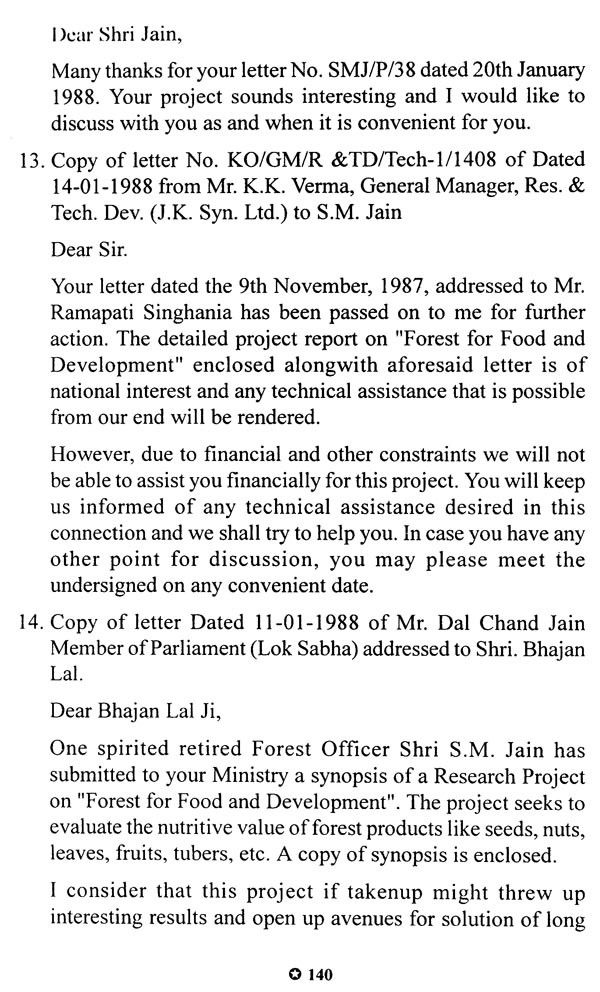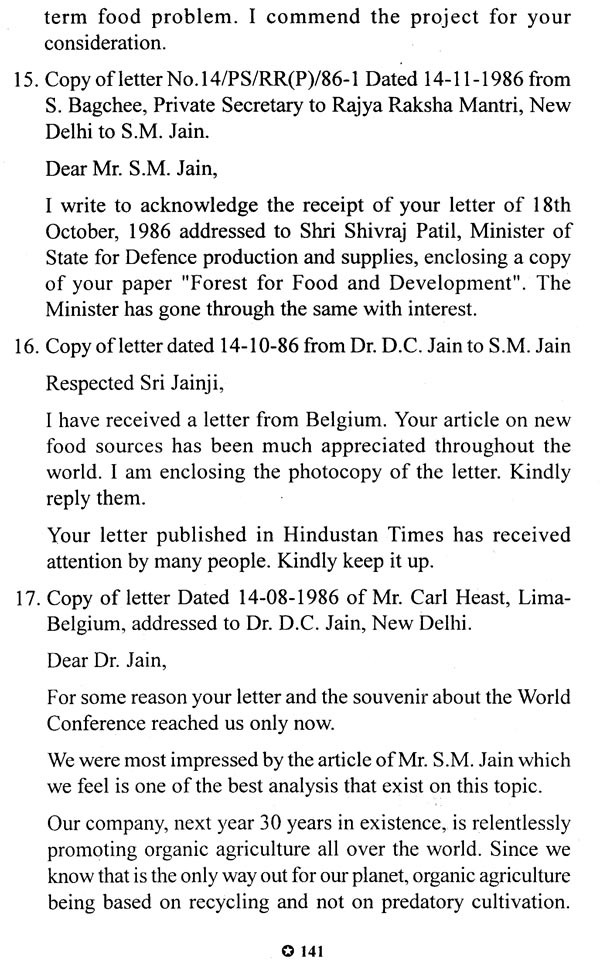
Environmental Ethics- Save Earth (The Only Known Planet Supporting Life)
Book Specification
| Item Code: | UAB332 |
| Author: | S.M. Jain |
| Publisher: | Prakrit Bharati Academy, Jaipur |
| Language: | English |
| Edition: | 2006 |
| Pages: | 149 |
| Cover: | PAPERBACK |
| Other Details | 8.50 X 5.50 inches |
| Weight | 230 gm |
Book Description
Shri S.M. Jain, is a retired Forest Officer. He worked on responsible and challenging posts in State Forest Department, covering every sphere of forestry activity. After retirement he did his innings in a leading paper mill, Rajasthan Tribal Area Development Cooperative Corporation (RTADCC), Apex N.G.O. and Indian Sugar Mills Association (ISMA), New Delhi. In RTADCC he started and organised first ever from the scratch the collection, storage and marketing of over forty different minor forest products in six tribal districts. In ISMA he planned, coordinated and guided various widely acclaimed rural development activities of 180 member sugar factories spread all over the country. He was member of four Sub Committees of the Federation of Indian Chambers of Commerce and Industry (FICCI) on behalf of ISMA and represented the President of FICCI in the Board of Governors of Indian Institute of Forest Management (IIFM), Bhopal. His project, "Forest for Food" was sanctioned by Department of Science and Technology and Ms. Sneh Sharma has done Ph.D. on it. Subsequently he started his consultancy services and worked as consultant in various industrial houses and mining firms and was instrumental in raising large scale plantations on wastelands, mined areas and waste dumps. <
The present paradigm of development has accentuated the asymmetry between technology and the environment, inflicting virtually irreversible damage to our ecological security. The emerging ecological crisis is, undoubtedly, the end result of a deeper cultural crisis. The fast spreading consumerist culture tends to reduce nature to an object shorn of its sacred purpose. It is increasingly clear that the survival not only of human race but also of all life forms on this planet now turns on a deeper spiritual and moral reawakening. There is the urgent need for humanity at large to draw upon the resources of its accumulated wisdom and cultural heritage that have for millennia guided great civilisations around the world.
Book's Contents and Sample Pages
